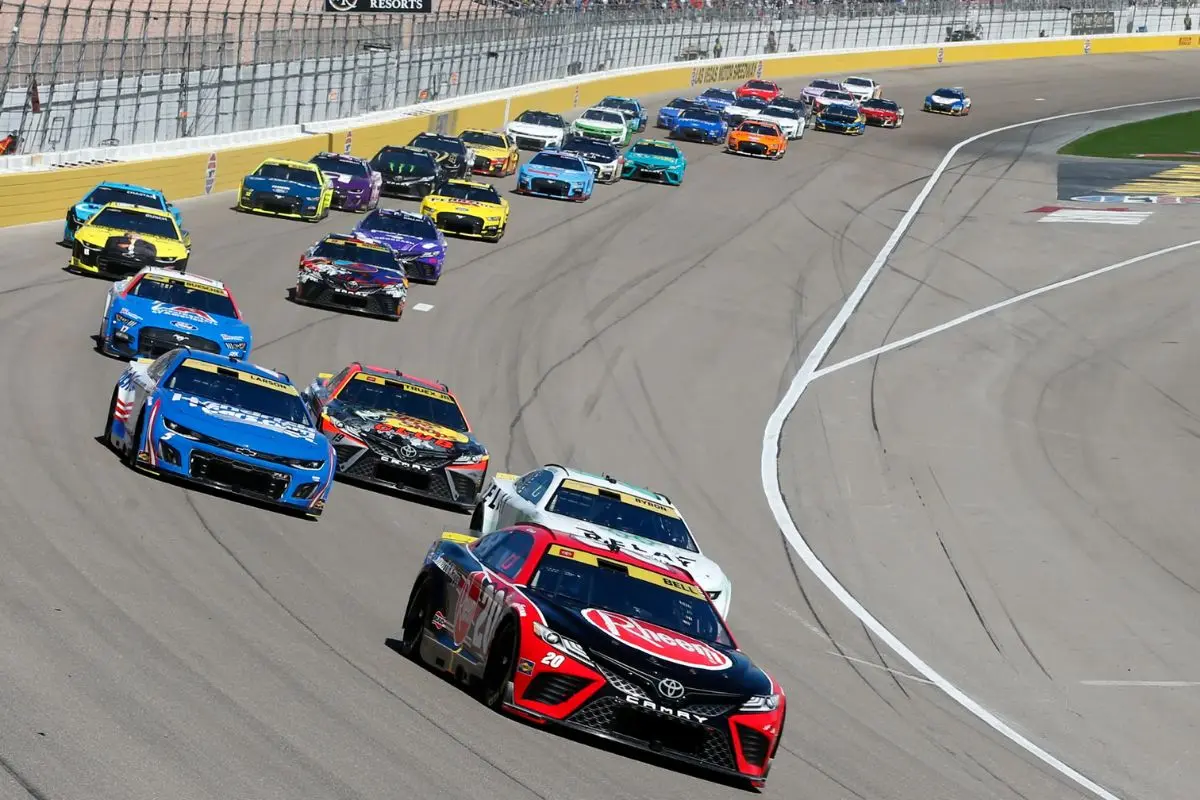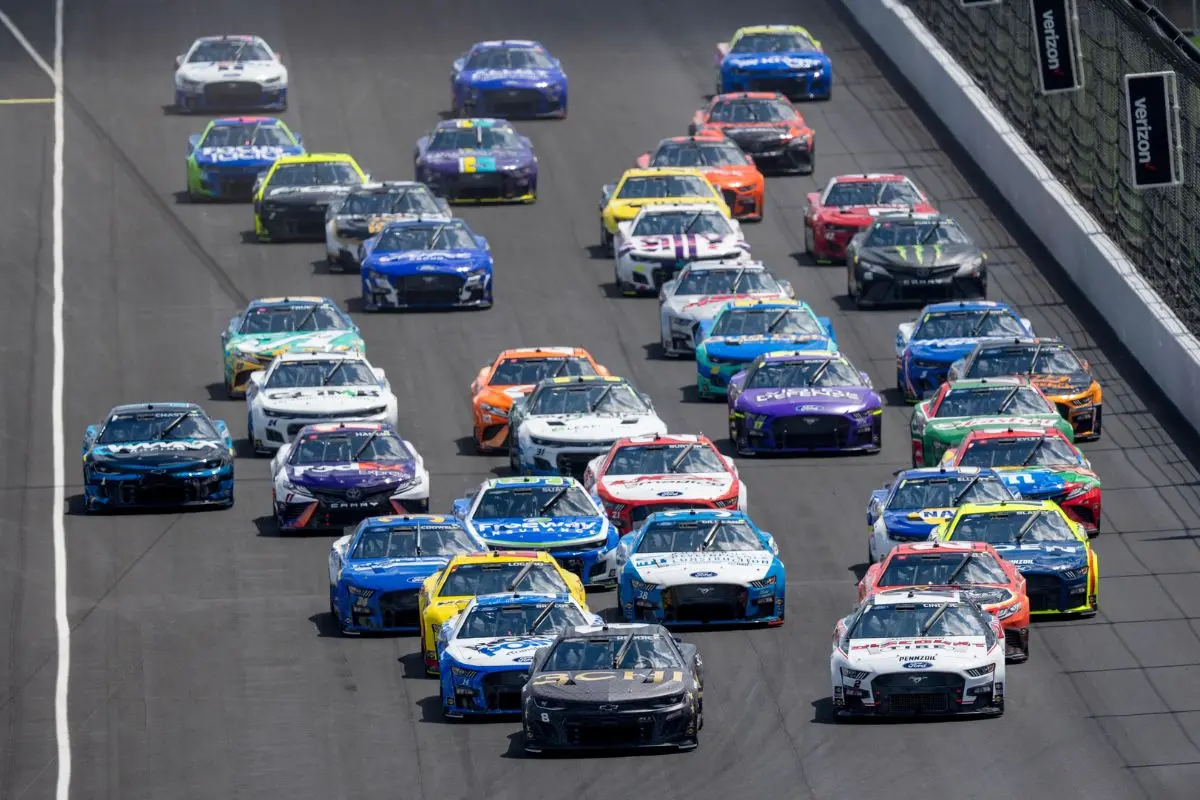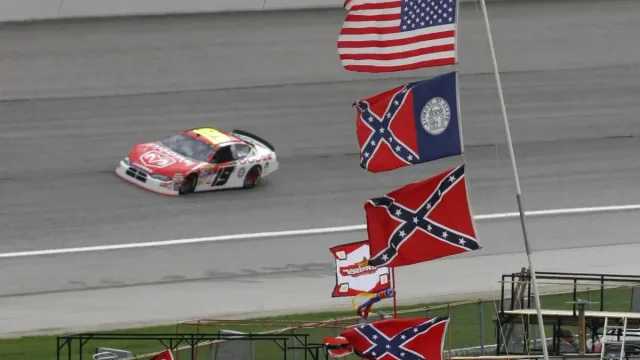NASCAR’s historic move to ban the confederate flag shook the sport to its core, sparking a whirlwind of reactions across the racing world. For years, the Confederate flag had been a part of NASCAR’s identity, but in 2020, everything changed. Fans, drivers, and teams were left wondering what this decision meant for the future of the sport. Was it a bold step forward or a controversial choice?
Key Highlights
- NASCAR banned the Confederate flag on June 10, 2020, to promote racial inclusivity and unity amid national calls for social justice.
- The ban followed advocacy by Bubba Wallace, NASCAR’s only Black full-time driver, highlighting its commitment to diversity.
- Reactions were mixed, with some fans upset and others supporting NASCAR’s efforts to create a welcoming environment.
- The decision is part of broader inclusivity initiatives, aiming to engage diverse communities and support minority drivers and teams.
- The ban aligns with NASCAR’s strategic goals to expand its fanbase, improve brand image, and enhance economic viability.
NASCAR’s Historic Move to Ban the Confederate Flag
Amidst a vital moment in its history, NASCAR made the notable decision to ban the Confederate flag from its events in 2020. This bold action marked a substantial departure from a long-standing symbol that had been closely associated with the sport. The decision followed a national outcry for racial justice in the aftermath of the killing of George Floyd by Minneapolis police, a moment that had profound implications across numerous sectors of American society.
NASCAR’s move was further inspired by Bubba Wallace, the sport’s only Black full-time driver at the time, who called for the flag’s prohibition within the sport. The Confederate flag, for many, represented a painful and divisive symbol of racism and oppression, and its presence at NASCAR events was increasingly seen as incompatible with the evolving values of inclusivity and equality.
By banning the flag, NASCAR sought to create a more welcoming environment for fans from all backgrounds, thereby aligning itself with broader societal shifts toward diversity and understanding. The ban was announced on June 10, 2020, and quickly became a topic of intense discussion within the racing community and beyond.
While the decision was met with some resistance, it also received considerable support from those who viewed it as a necessary step toward progress. The timing of the announcement, just before a Cup Series race at Martinsville, highlighted NASCAR’s commitment to moving forward, even amid the challenges posed by the COVID-19 pandemic.

Bernice King’s Reaction to NASCAR’s Decision
Although the decision to ban the Confederate flag from NASCAR events was met with varying opinions, it garnered considerable support from prominent figures like Bernice King, the youngest child of Dr. Martin Luther King Jr. Bernice King, who was only five years old when her father was assassinated in 1968, has emerged as a staunch advocate for civil rights, carrying forward the legacy of her father.
Her endorsement of NASCAR’s decision reflects not only her personal commitment to equality but also the broader societal shift towards inclusivity and respect for all cultural backgrounds.
#NASCAR, family…
— Be A King (@BerniceKing) June 10, 2020
The Confederate flag, long a symbol of division and racism, has been a contentious issue within American society. NASCAR’s decision to remove it from its events marks a notable step in acknowledging and addressing the painful history it represents.
Bernice King’s positive reaction to this move highlights the importance of actions that promote unity and equality, aligning with the principles her father championed during his lifetime. Every year, on January 20, the nation remembers Dr. King, celebrating his contributions through MLK Day, a reminder of the ongoing struggle for civil rights.
Bernice King’s support for NASCAR’s decision is not only a nod to her father’s enduring legacy but also a call to action for other organizations to follow suit. Her stance is a demonstration of the belief that progress is achieved through courageous decisions that challenge the status quo, reinforcing the idea that symbols matter in the pursuit of a more just and equitable society.
NASCAR’s Effort to Move Forward with Inclusivity
In its pursuit of inclusivity, NASCAR has undertaken substantial measures to transform the cultural landscape of the sport. This transformation began with the decisive step of banning the Confederate flag, a symbol that has long been associated with division and exclusion. By taking this bold action, NASCAR signaled a commitment to creating a more welcoming environment for all fans and participants, regardless of their ethnic background.
NASCAR, traditionally rooted in Southern culture, has been perceived as a mainly white sport. However, the recent efforts to foster inclusivity have started to reshape this image. The decision to remove the Confederate flag is not merely symbolic; it is a concrete step towards promoting diversity and combating racial disparities within the sport. This move has been instrumental in encouraging broader participation and viewership from diverse demographics, who may have previously felt alienated.
Furthermore, NASCAR has also taken steps to guarantee that its policies and practices reflect its commitment to inclusivity. By actively engaging with diverse communities and promoting initiatives that support minority drivers and teams, NASCAR aims to create an environment that is reflective of the broader society.

Reasons Behind NASCAR’s Decision to Ban the Confederate Flag
NASCAR’s decision to ban the Confederate flag stems from a tactical necessity to broaden its appeal and reverse declining viewership and TV ratings. The organization recognized that to sustain growth and attract a diverse fanbase, notable cultural shifts were necessary. The presence of the Confederate flag had long been a polarizing issue, deterring potential fans and sponsors who viewed it as a symbol of division. By banning it, NASCAR positions itself as a forward-thinking entity, keen on embracing inclusivity and diversity.
Today, we celebrate the life and legacy of Dr. Martin Luther King Jr.
In honor of #MLKDay, NASCAR employees are hosting local drives in the Charlotte and Daytona offices to collect supplies for the unhoused. pic.twitter.com/4CoR53722E
— NASCAR (@NASCAR) January 20, 2025
Several key factors influenced NASCAR’s decision:
- Global Expansion: NASCAR aims to expand its fanbase beyond its traditional Southern roots. By removing symbols that may alienate international audiences, NASCAR hopes to attract global viewers and competitors.
- Diverse Audience Engagement: The sport acknowledges the importance of engaging with diverse communities. Banning the flag is a step towards making NASCAR events more welcoming to all, encouraging a broader demographic to participate as fans and racers.
- Brand Image: In today’s socially-conscious environment, maintaining a positive brand image is vital. By distancing itself from the Confederate flag, NASCAR aligns with contemporary societal values and improves its appeal to sponsors and partners who prioritize diversity.
- Economic Viability: With declining viewership and TV ratings, NASCAR needs to revitalize its economic model. Encouraging a more inclusive environment can lead to increased ticket sales, merchandise revenue, and sponsorship opportunities, ultimately stabilizing its financial future.
NASCAR’s Official Statement on the Flag Ban
The announcement to ban the Confederate flag at its events marked a significant moment in NASCAR’s commitment to inclusivity and diversity. This decision, though met with mixed reactions, highlights the organization’s dedication to fostering a welcoming environment for all. By issuing a formal statement, NASCAR clarified its stance, emphasizing that the presence of the Confederate flag was inconsistent with its goals to create an inclusive atmosphere for fans, competitors, and the broader racing industry.
In its official statement, NASCAR articulated its mission to unite people through the shared passion for racing and the vibrant community it nurtures. The governing body recognized that its events serve as a platform for diverse audiences and that the Confederate flag’s presence could alienate and dishearten many attendees.
“The presence of the confederate flag at NASCAR events runs contrary to our commitment to providing a welcoming and inclusive environment for all fans, our competitors, and our industry.”
“Bringing people together around a love for racing and the community that it creates is what makes our fans and sport special.” – NASCAR
Consequently, the ban reflects NASCAR’s alignment with the broader movement towards social justice and equality, especially during a crucial time when sports organizations are scrutinized for their cultural and social responsibilities.
NASCAR’s tactical decision comes against the backdrop of the sport being one of the few to operate during the pandemic, amplifying its role in setting a benchmark for inclusivity. By addressing this sensitive issue directly, NASCAR aims to preserve its integrity and appeal to a diverse fanbase.
While some critics argue against the ban, the move is a clear signal of NASCAR’s intent to evolve and engage with the changing cultural landscape. This step is a key part of its strategy to guarantee that its events are spaces where all individuals feel respected and valued.
![]()
News in Brief: NASCAR’s Historic Move to Ban the Confederate Flag
NASCAR’s decision to ban the Confederate flag represents a notable shift towards inclusivity within the sport, reflecting broader societal changes and a commitment to diversity. The move has elicited a range of reactions, highlighting the complex cultural dynamics at play.
By removing a symbol that many find divisive, NASCAR aims to create a more welcoming environment for all fans. This historic decision emphasizes the organization’s effort to align with contemporary values and to foster a community that accepts equality and respect.
ALSO READ: How NASCAR Drivers Dominated the 2025 Chili Bowl Nationals Amid Fierce Rivalry
